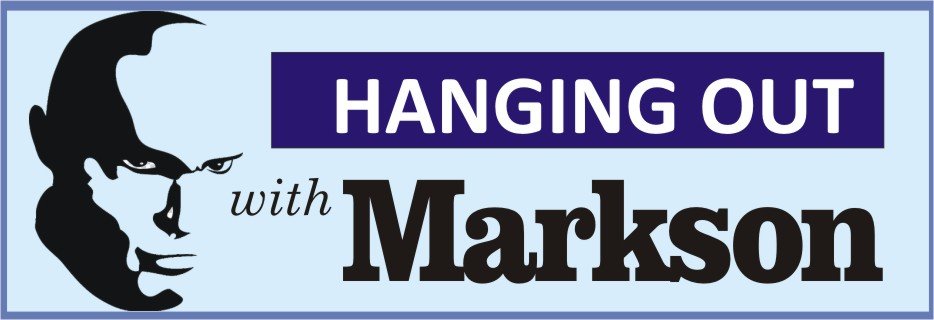
Port Harcourt — I don’t know how it feels like to live or work in Aso Villa. Ibrahim Babangida (IBB) built the complex and moved in as the first occupant on December 12, 1991. I hear unconfirmed reports that Aso Villa is the most protected presidential residence in Africa. And I don’t expect any confirmation one way or the other as this reputation weighs well for the security façade of the “first house.” PDP presidential candidate Atiku Abubakr once famously described Aso Villa as “a glorified prison.” He should know, having been Vice President. Tinubu has yet to move into Aso Villa as it is being renovated. So, he commutes from his private residence at Asokoro to his office in the Villa every morning, and mortals who happen to be on the road at the same time suffer long waits, this, when a litre of fuel costs more than N600 in the explosively expensive city of Abuja. With mounting complaints on the troubles caused by the presidential motorcade, the man whose fate will soon be decided by the courts decided to move into Glass House, an exquisite living quarters in the Villa, until his own wing is fully retouched. But he is in power even when he had not been sleeping in Aso Villa, and the burden and weight of office are already leaving their marks on the shoulders of the 71-year-old leader. (I need your prayers to tread carefully here. During the campaigns, former House of Representatives Speaker and now Chief of Staff Femi Gbajabiamila advised doubting Thomases on the then presidential candidates’ age to confirm with his mother. A straightforward advice, you might say, except that Mummy Tinubu died in 2013!)
Like a new sheriff in town, Mr. President has left no one in doubt that he is in power even if not yet on his bed in Aso Villa. He underlined the removal of fuel subsidy, signed executive orders and sacked the Service chiefs and suspended CBN Governor Godwin Emefiele. On the international scene, he made his first official visit overseas to France and was elected Chairman of ECOWAS on July 9. But two issues on the home and domestic fronts are giving us an early indication of the banana peels Mr. Tinubu will have to skirt around. As I write, workers in different parts of the country are on the streets protesting the impact of the subsidy matter. Then last week in neighbouring Niger, President Mohamed Bazoum was removed by the presidential guards, the same soldiers who were meant to protect him from such a fate. This was a direct contradiction of the “no more coup” resolve of the Nigerian leader when he assumed the chairmanship of the regional bloc in Guinea Bissau. Welcome to the reality of power, Mr. Tinubu!
Mr. President will be familiar with the import of the fuel subsidy protests. His party, the Action Congress of Nigeria which was then in opposition supported and even encouraged similar demonstrations against the Jonathan administration when it removed the subsidy in 2012. As the “Occupy Nigeria protests” intensified, not surprisingly in his base, Lagos, Mr. Tinubu issued a statement titled “Removal of oil subsidy – President Jonathan breaks social contract with the people” in which he accused Dr. Goodluck Jonathan of being “a slave to wrong-headed economics.” With righteous indignation, he said, “the people will become enslaved to greater misery. This crisis will bear his name and will be his legacy. The people now pay a steep tax for voting him into office. The removal of the subsidy is the ‘Jonathan tax’.” Now facing the same scenario as President, Mr. Tinubu deftly moved to stem the crisis. First, he promised salary increases for workers and announced policy initiatives in a 20-minute radio and television broadcast timed to steal the thunder from the workers. Then when the workers came out on August 2, he quickly met with the labour leaders at the end of which Aso Villa issued a statement saying the marches and strikes had been called off after “fruitful and frank discussions.” I saw the statement. It was issued on the day of the marches but dated August 3. Someone was in a hurry to push it out! On August 3 itself, the labour leaders, as you would expect, called off their action. Which gives a much-valued breathing space on this matter.
But the Niger coup is a different kettle of fish. The reason is not far to seek. Niger and Nigeria share a 1,500km stretch of border and cultural and trade ties that date back to the time when parts of both countries belonged to the Sokoto caliphate. Today, both countries suffer Boko Haram attacks, leading to the setting up of a multinational military task force comprising Nigeria, Niger, Chad and Cameroon, with the UK, US and France as “strategic and technical partners.” Niger is the world’s seventh largest producer of uranium and the possibility of this radioactive material falling into the hands of heartless terrorists cannot be ignored. President Bazoum came into the post through the ballot box in April 2021 and has been co-operating in the fight against terrorists. What makes his overthrow more ominous is because of a similar experience in Mali and Burkina Faso where soldiers who took over have thrown out Western backers in favour of Russian mercenary group, Wagner. Formed in 2014, Wagner does the dirty jobs for the Russian government which in turn funds it. They are involved in wars anywhere there is one – Asia, South America, Europe and of course Africa (Libya, Sudan, Central African Republic, Mali, Burkina Faso etc.) Wagner leaders have welcomed the coup in Niger framing it as a struggle against colonialism.
President Tinubu faces a real dilemma on how to deal with the coup in Niger as it portends grave security challenges for Nigeria if Niger were to fall into the hands of Russian mercenaries as have Burkina Faso and Mali. It will lead to the formation of “an axis of evil” with terrifying consequences. Yet, to be brutally realistic, ECOWAS, apart from imposing sanctions, has little capability to launch troops into Niger to reinstall the overthrown government. It may all therefore boil down to a scenario of strategic impotence: ECOWAS member countries will bark from a distance hoping Niamey hears loud enough to change. And as if these are not enough headaches, the Nigerian leader is waiting to hear his fate from the Presidential Election Petition Tribunal. Welcome to the reality of power, Mr. Tinubu!
Follow us on twitter

